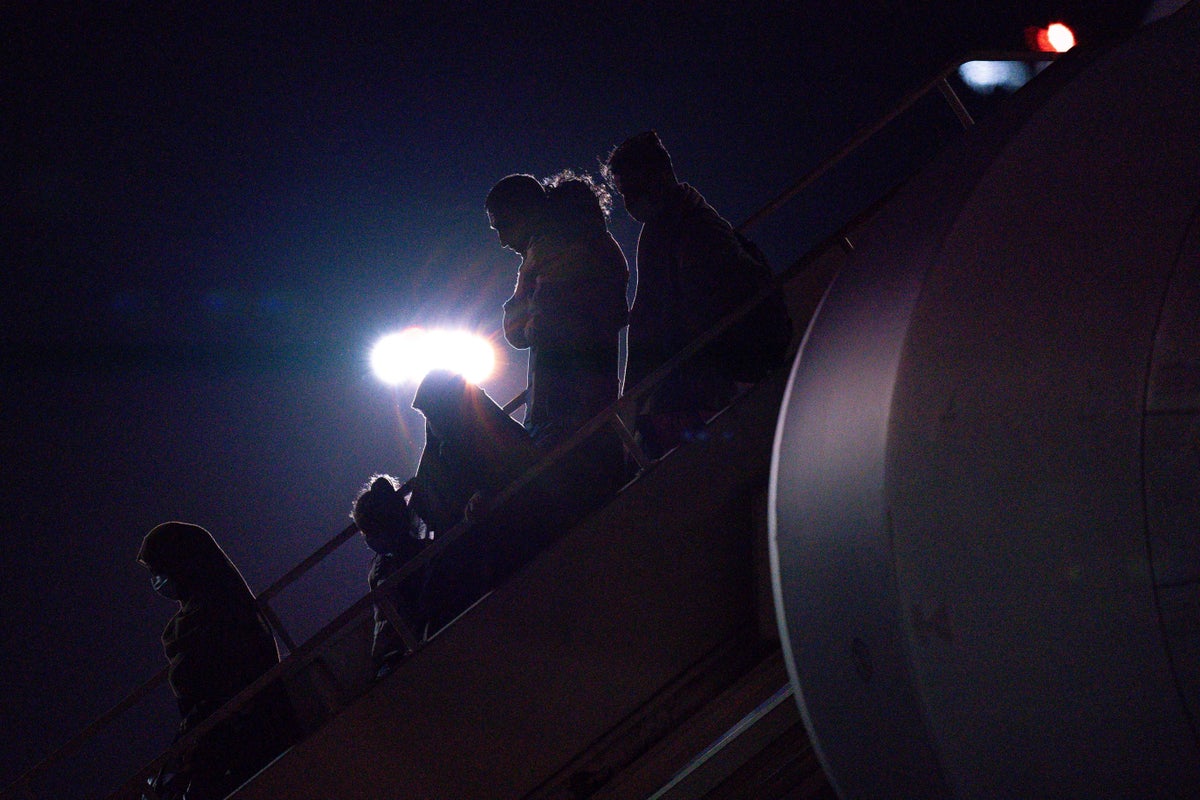
The government has been accused of failing vulnerable Afghans as figures show just 233 have been resettled in the UK this year under the flagship scheme.
The latest statistics come as it was confirmed Afghans were the most common nationality to arrive by Channel crossings in the first half of 2023.
At least 1,474 Afghan nationals arrived in small boats from January to June, Home Office figures released on Thursday showed.
Afghans fleeing the Taliban have been forced to make the perilous journey across the Channel because they cannot access the official routes, which have been criticised for being too narrow.
The Independent has revealed how Afghans who served alongside British troops have been threatened with deportation to Rwanda once they reach UK shores.
Military chiefs and politicians have called on Rishi Sunak to “get a plan” to relocate the hundreds of Afghans who are eligible for resettlement in the UK and who are currently stuck in Pakistan.
New figures show that only 66 people have ever been resettled under pathway two of the Afghan Citizens Resettlement Scheme (Acrs), which was designed to help at-risk Afghans find sanctuary in the UK. Some 41 people have come under the third pathway, which supports, among others, Afghan teachers who worked with the British Council.
The International Rescue Committee (IRC) UK said that the small numbers revealed the “government’s failure to provide protection for vulnerable Afghans”.
IRC UK executive director Laura Kyrke-Smith said: “In pushing forward the Illegal Migration Act, the government time and time again assured concerned parliamentarians and the British public that there existed ‘safe routes’ for refugees from countries like Afghanistan. These statistics show that these routes simply aren’t matching the scale of need.”
She called on the government to expand the Acrs scheme “to honour the original pledge of 20,000 places”.
Afghans were the second most common nationality applying for asylum in the year to June 2023, with 9,964 applications, almost double the number in the previous 12 months (5,154).
After the Taliban takeover in August 2021, the British military airlifted thousands of people from the country to safety in the UK and set up two schemes to help others left behind. But both the Acrs and the MoD’s Afghan Relocations and Assistance Policy (Arap) have faced criticism from campaigners and charities for being too slow and limited.
Pathway one of the Acrs scheme, which focused on those who arrived in the UK under the evacuation programme or who were unable to board flights at the time of the large-scale evacuation, has seen 126 people resettled in the year to June.
The Arap scheme, which was launched in April 2021 for those who worked for or with the UK government in Afghanistan, saw 2,336 people resettled in the UK in the 12 months to June this year.
The government pledged to resettle more than 5,000 people in the first year of Acrs, and up to 20,000 over the coming years.
In the two years between July 2021 and June this year, a total of 9,778 people had been resettled under Acrs – although more than 9,000 were resettled before the scheme had officially opened in January 2022.
There were 6,575 Afghans in hotels or serviced accommodation by the end of June, half of whom were children, the government said.
Afghans were given a deadline to leave hotels by the end of August, with Cabinet Office minister Johnny Mercer recognising earlier this month that the announcement had been “a controversial move” but insisted it was done “with compassion in mind” to get people into permanent accommodation.
Councils have expressed concerns that many of those evicted from hotels could end up presenting as homeless, therefore needing temporary accommodation.
A government spokesperson said: “No one should be risking their lives by crossing the Channel or taking dangerous and illegal routes to reach the UK- there are safe and legal routes to come here.
“The number of Afghans which the UK has commited to resettling under the ACRS scheme is generous, and greater than many of our international counterparts.”







